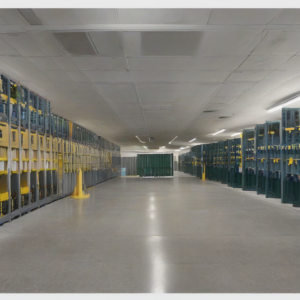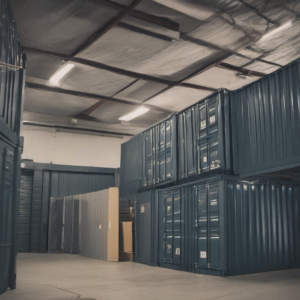Unlocking Atlanta’s Storage Solutions: Your Guide to Self Storage Units
Atlanta, a vibrant city brimming with history, culture, and a thriving economy, presents unique storage challenges for its residents and businesses. Whether you’re downsizing, renovating, relocating, or simply needing extra space, understanding the self-storage landscape in Atlanta is crucial. This comprehensive guide navigates the intricacies of finding the perfect self-storage unit to meet your specific needs.
Types of Self Storage Units in Atlanta
The diversity of Atlanta’s self-storage options caters to a wide range of storage requirements. Understanding the different types available is the first step in finding the right fit.
- Climate-Controlled Units: Ideal for sensitive items like furniture, electronics, and artwork, these units maintain a consistent temperature and humidity level, protecting your belongings from damage caused by extreme weather conditions.
- Drive-Up Units: Offering easy access directly from your vehicle, these units are perfect for loading and unloading heavy or bulky items without the need for stairs or long hallways. They are commonly preferred for short-term storage.
- Indoor Units: Providing enhanced security and protection from the elements, indoor units are a popular choice for a variety of storage needs.
- Outdoor Units: Typically more affordable than indoor units, outdoor units are suitable for storing items less susceptible to weather damage, such as sturdy furniture or yard equipment. They often provide easy drive-up access.
- Specialty Units: Some facilities offer specialized units designed for specific items like vehicles (car storage), boats, or RVs. These units usually come with additional features and security measures.
Factors to Consider When Choosing a Self Storage Unit in Atlanta
Selecting the right self-storage unit involves more than just size and price. Several crucial factors should be carefully considered:
- Location: Convenience is key. Choose a facility located close to your home or workplace to simplify access to your belongings.
- Size: Accurately estimate the space you’ll need. Many facilities offer unit size calculators to assist in this process. Overestimating can lead to unnecessary expense, while underestimating can result in insufficient space.
- Security: Opt for a facility with robust security measures, including video surveillance, secure access gates, and well-lit premises. Inquire about insurance options offered by the facility.
- Accessibility: Consider the facility’s operating hours, accessibility for vehicles (especially large trucks or trailers), and the availability of loading docks or drive-up access.
- Price: Compare prices from different facilities and consider the overall value offered, including security, amenities, and convenience. Monthly rates can vary significantly depending on unit size, location, and features.
- Reputation: Read online reviews and check ratings from previous customers to gauge the facility’s reputation for customer service, cleanliness, and overall experience.
- Insurance: Understand the facility’s insurance policy and consider purchasing additional insurance coverage to protect your stored belongings against unforeseen events such as theft, fire, or water damage.
- Contract Terms: Carefully review the terms and conditions of your rental agreement before signing, paying close attention to the duration of the lease, early termination fees, and late payment policies.
Finding Self Storage Units in Specific Atlanta Areas
Atlanta’s diverse neighborhoods offer a range of self-storage options tailored to specific community needs. Researching facilities within your desired area is crucial for maximizing convenience and minimizing transportation costs.
- Downtown Atlanta: Self-storage facilities in the heart of the city often cater to businesses and residents with limited space. Expect higher prices due to prime location.
- Midtown Atlanta: Similar to Downtown, Midtown offers convenient storage solutions but with potentially higher costs. Facilities here are in high demand.
- Buckhead: Known for its upscale residential areas, Buckhead provides self-storage options catering to a more affluent clientele. Expect a higher price point.
- North Atlanta: This expansive area encompasses several suburbs offering a wider variety of storage facilities, often with more competitive pricing compared to the city center.
- South Atlanta: Similar to North Atlanta, this region presents various options with a potentially broader price range.
- East Atlanta: This area offers a mix of residential and commercial properties, providing self-storage options that cater to both populations.
- West Atlanta: Like its counterparts, West Atlanta provides various self-storage choices, with pricing that reflects the local market conditions.
Tips for Maximizing Your Self Storage Space
Efficiently utilizing your rented space is crucial for maximizing value and minimizing costs. These tips can help you optimize storage:
- Purge Unnecessary Items: Before moving anything into storage, thoroughly declutter and eliminate items you no longer need or use. This reduces storage costs and minimizes the risk of damage to unwanted items.
- Organize and Pack Strategically: Use vertical space effectively by stacking items neatly. Utilize storage containers of various sizes to group similar items and improve organization. Clearly label all boxes and containers for easy identification.
- Protect Your Belongings: Use protective materials like blankets, bubble wrap, and packing paper to safeguard fragile items from damage during transport and storage. Consider climate-controlled units for items sensitive to temperature and humidity.
- Utilize Space-Saving Techniques: Consider using space-saving solutions like vacuum-sealed bags for clothes and linens to reduce bulk. Roll up clothes instead of folding them to save space.
- Regularly Inspect Your Belongings: Periodically check your stored items to ensure they remain in good condition and to address any potential issues promptly.
Moving and Packing Tips for Atlanta Self Storage
Moving your belongings to a self-storage unit requires careful planning and execution. Following these tips can ensure a smooth and efficient process:
- Schedule Your Move: Choose a moving date that allows ample time for packing and transportation. Avoid peak moving seasons for better availability and potentially lower prices.
- Gather Supplies: Collect all necessary packing supplies, including boxes, tape, markers, bubble wrap, and packing paper. Consider renting a moving truck or hiring professional movers depending on your needs and budget.
- Pack Efficiently: Pack heavier items at the bottom of boxes and distribute weight evenly to prevent damage. Clearly label each box with its contents and the room it belongs to.
- Protect Fragile Items: Wrap fragile items individually with bubble wrap or packing paper and secure them inside boxes with plenty of cushioning material.
- Transport Carefully: Securely fasten items in your vehicle to prevent shifting during transport. Drive cautiously and allow extra time for travel, especially during peak traffic hours.
- Inventory Your Belongings: Keep a detailed inventory list of all items stored, including descriptions and values, for insurance purposes.
Self Storage Laws and Regulations in Atlanta
Understanding the relevant laws and regulations governing self storage in Atlanta is crucial for renters and facility operators. These regulations typically cover topics such as:
- Rental Agreements: The terms and conditions of rental agreements are subject to state and local laws, which define the rights and responsibilities of both renters and facility owners.
- Liens: Facilities may place a lien on stored goods if rent is not paid. Understanding lien laws is crucial for both renters and facilities.
- Eviction Procedures: Specific procedures must be followed for the eviction of tenants who are in violation of their rental agreement.
- Insurance Requirements: While not always mandated, facilities often require insurance coverage to protect both themselves and the stored goods. Renters should understand these requirements.
This information is for general guidance only and should not be considered legal advice. Consult with legal professionals for specific legal questions.





